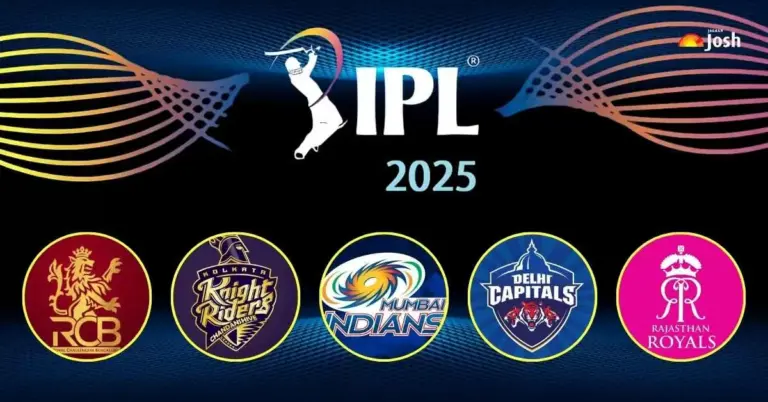Why is Sri Lanka Missing From The ICC Champions Trophy 2025? What Was the Qualification Criteria?
Welcome to Apbook and Lotus365 – in today’s discussion, we dive deep into why Sri Lanka finds itself absent from the ICC Champions Trophy 2025 and what the qualification criteria entailed for this prestigious tournament. As fans, analysts, and sports enthusiasts, it is essential to understand the underlying factors that have led to Sri Lanka’s current predicament and the broader implications on international cricket tournaments.
A Look at the Qualification Process for ICC Champions Trophy 2025
The ICC Champions Trophy has historically been a tournament that brings together the top cricketing nations based on rigorous qualification criteria. The structure of this tournament reflects the governing body’s desire to ensure that only the most competitive teams participate, thus preserving the standard and anticipation for the event. For the 2025 edition, this qualification process was meticulously revised to reflect the evolution in international cricket.
The main factors considered in the qualification include ranking points accrued through bilateral series, performance in recent ICC events, and even adjustments based on the completion rate of scheduled matches in various bilateral tours. Teams needed to secure a specific ranking threshold to be eligible for the final tournament. This threshold, as established by the International Cricket Council (ICC), was challenging enough that even historically strong teams like Sri Lanka struggled to meet the benchmarks. The fast-paced evolution of the game, innovative training regimes, and deeper bench strength in many traditional cricket powerhouses have all contributed to a highly competitive selection process.
Moreover, the ICC also took note of the hosting parameters and logistics, ensuring that the tournament not only had competitive teams but also operated within a framework that supported swift travel, accommodation, and scheduling for the participating nations. This reformed criteria ultimately meant that teams had to excel consistently over a longer period rather than relying on a few standout performances.
Implications of Sri Lanka’s Absence
The absence of Sri Lanka from the ICC Champions Trophy 2025 has stirred quite a conversation amongst cricket enthusiasts worldwide. This is not just a reflection on the state of the team but also on the broader changes occurring within international cricket.
Reassessing the Domestic Infrastructure
Sri Lanka’s cricketing trajectory has long been associated with brilliant talent and moments of individual brilliance. However, the current scenario calls for a thorough reassessment of its domestic infrastructure. A more effective grassroots development program and increased financial investment in local leagues are critical. By nurturing young talent and offering them exposure to competitive matches early on, Sri Lanka may re-establish itself as a formidable contender on the international stage. This introspection can help address both the technical and strategic deficits that have emerged over recent years.
Strategic Shifts and Coaching Philosophy
The evolving nature of international cricket mandates that teams undergo strategic shifts and modernize their training regimes. Sri Lanka’s current gap from the tournament may be a signal that the team’s coaching staff and support management need to integrate more progressive strategies. This includes leveraging advanced analytics, modern batting techniques, and innovative field placements. Adapting to the dynamic style of play that is now prevalent in formats such as T20 cricket could serve as a catalyst for longer-format success as well. The need for rapid adaptation in both strategy and technique has never been more pressing.
Impact on the International Cricket Community
The exclusion of a storied cricketing nation like Sri Lanka naturally triggers debates within the international community. For fans, it is disheartening; for pundits, it is an opportunity to explore and debate the evolution of the game. Critics have argued that while reforming the qualification criteria is essential, the ICC must also consider the historical contributions and potential resurgence of traditional teams. Balancing modern competitive standards with the legacy of cricket’s rich history represents one of the toughest challenges the governing body currently faces.
Looking Forward: The Road Ahead for Sri Lanka
Sri Lanka’s current status should be viewed not as an endpoint but as a critical juncture for recalibration. The path back to global cricketing relevance requires a multi-layered strategy that includes robust domestic leagues, modernization of training practices, and international collaboration to regain lost ground.
Investment in Youth and Grassroots Initiatives
The focus must sharply turn towards youth development. Capturing untapped potential and ensuring that there is a steady pipeline of talented players will lay the foundation for the future. Lessons learned from cricketing giants emphasize that long-term success is built on strong grassroots structures that identify and nurture potential from an early age. Initiatives similar to those seen in other nations, where youth academies feed directly into national team selection, might be the answer.
Embracing Technology and Innovation in Cricket
Modern cricket is deeply intertwined with technology. From video analysis to biomechanical assessments and data analytics, these tools provide crucial insights that can transform individual performances. Sri Lanka would do well to invest in these modern methodologies to enhance player performance and strategic decision-making processes. Embracing technological innovations could serve as a game-changer, enabling them to rise once again in future tournaments.
Collaborative Efforts with the ICC and Cricketing Bodies
The ICC Champions Trophy 2025 has highlighted the importance of a cohesive strategy involving all stakeholders – from national boards to international governing bodies. Sri Lanka’s reintegration into top-tier international tournaments will require cooperative measures, such as friendly matches, training camps, and strategy sessions with other established teams. By aligning their goals with the broader objectives of international cricket, Sri Lanka can expedite its journey back to contention.
In conclusion, while the absence from the ICC Champions Trophy 2025 is a significant setback for Sri Lanka, it also offers a crucial opportunity for introspection and strategic reinvention. With focused efforts on developing domestic talent, modernizing training methods, and embracing technological advancements, there is a promising path ahead for Sri Lanka to reclaim its place in international cricket.






